It always manages to amaze me how fast the months fly by, it seems like only yesterday we were announcing the May 2011 Criterion Collection titles, and here we are with June’s. This month continues Criterion’s recent trend of increasing the new titles selection, and bringing an amazing director to the Eclipse Series.
Let’s go through all of the new titles first this time. Earlier this year, Criterion released their “wacky new years” drawing, hinting at a couple of titles that we are finally getting to see made official this June. In that drawing we had an image of Marilyn Monroe with Albert Einstein’s head, hinting at Nicolas Roeg’s film, Insignificance. This will be released on DVD and Blu-ray on June 14. In that drawing, we also had the infamous glowing briefcase, hinting at Robert Aldrich’s Kiss Me Deadly (which also screened last year at the Criterion curated All Tomorrow’s Parties). Despite the fact that the cover art features a still from the film, I’m a big fan of it’s pulpy design work. Kiss Me Deadly will be released on DVD and Blu-ray on June 21st.
June will also see the DVD and Blu-ray release of Kon Ichikawa’s The Makioka Sisters, which Janus toured a few years back, and will be presenting a new 35mm print on May 4th (through the 12th) at the Film Forum in New York. The DVD and Blu-ray will be released on June 14.
Next up has to be the film I’m most looking forward to buying this June: People On Sunday. This German “early neo-realist” film sounds absolutely amazing from everything I’ve read in the past few hours. There is a write up over at this month’s issue of The Believer magazine. I hope that Janus tours this film theatrically as well. The DVD and Blu-ray of People on Sunday will be released on June 21.This lyrical adaptation of the beloved Japanese novel by Junichiro Tanizaki was a late-career triumph for world-class director Kon Ichikawa. Revolving around the changing of the seasons, The Makioka Sisters (Sasame-yuki) follows the lives of four sisters who have taken on their family’s kimono manufacturing business, over the course of a number of years leading up to the Pacific War. The two oldest have been married for some time, but according to tradition, the rebellious youngest sister cannot wed until the third, conservative and terribly shy, finds a husband. This graceful study of a family at a turning point in history is a poignant evocation of changing times and fading customs, shot in rich, vivid colors.
Finally we have two new films from Louis Malle to add to the collection: Black Moon and Zazie dans le Metro. Black Moon was hinted at last month in the e-mail newsletter, and again on Criterion’s Facebook wall, where they teased the artwork over the course of three days. Both films seem to expand upon Louis Malle’s importance as a director, showing his range (as if what was available in the Eclipse Series and in the Collection didn’t already). Both will be released on June 28th.
This month’s Eclipse Series selection, The Runaway Melodramas of Raffaello Matarazzo, is a real treat. These films have essentially been unavailable here in the states (apart from the rare import), and I cannot wait to see what David has to think of them, when he covers them for his Journey Through The Eclipse Series column. Trailers for these films are hard to come by, but I did manage to find one down at the bottom of the post.
What do you think of this June’s Criterion Collection new releases? Which are you pre-ordering right away? Which are you waiting to rent? Any thoughts on the cover art choices? Leave your thoughts in the comments below?
Insignificance
Nicolas Roeg
Criterion Collection # 566, Available on DVD and Blu-ray on June 14th
When Marilyn Monroe (Theresa Russell), Albert Einstein (Michael Emil), Joe Dimaggio (Gary Busey) and Joe McCarthy (Tony Curtis) cross paths one sweltering New York night in 1953, the result is a cauldron of mistaken identities and marital misgivings. British firebrand director Nicolas Roeg (Walkabout, Bad Timing) assembles an excellent cast, confines them in hotel rooms, and lets them self-destruct in this witty and powerful deconstruction of celebrity. At the film’s centre, Monroe courts Einstein with demands for intellectual ‘“ and physical ‘“ nourishment the day before the physicist is to deliver a lecture about the evils of atomic technology. But with McCarthy attempting to roadblock the left-leaning Professor, and Dimaggio furious after finding Eistein and Monroe in bed, Insignificance becomes a mini-Hiroshima in a hotel suite. Nominated for the Golden Palm at the Cannes Film Festival (1985), this is Nicolas Roeg at his very best. – Mubi.com
Four unnamed people who look and sound a lot like Albert Einstein, Marilyn Monroe, Joe DiMaggio, and Joseph McCarthy converge in one New York City hotel room for this compelling, visually inventive adaptation of Terry Johnson’s play, from director Nicolas Roeg. With a combination of whimsy and dread, Roeg creates a fun-house-mirror picture of cold war America that questions the nature of celebrity and plays on a society’s simmering nuclear fears. Insignificance is a delirious, intelligent drama, featuring magnetic performances by Michael Emil as ‘the professor,’ Theresa Russell as ‘the actress,’ Gary Busey as ‘the ballplayer,’ and Tony Curtis as ‘the senator.’
Disc Features
DIRECTOR-APPROVED SPECIAL EDITION:
- Newly restored digital transfer, supervised and approved by director Nicolas Roeg and producer Jeremy Thomas (with uncompressed monaural soundtrack on the Blu-ray edition)
- New video interviews with Roeg, Thomas, and editor Tony Lawson
- Making ‘Insignificance,’ a short documentary shot on the set of the film
- Original theatrical trailer
- PLUS: A booklet featuring an essay by film critic Chuck Stephens and a reprinted exchange between Roeg and screenwriter Terry Johnson
The Makioka Sisters
Kon Ichikawa
Criterion Collection # 567, Available on DVD and Blu-ray on June 14
Hailed by many as one of the finest works of Japanese literature of the 20th century, Junichiro Tanizaki’s epic novel Sasameyuki (which translates as A Light Snow Fall, though the book and this adaptation are better known under the English title of The Makioka Sisters) covers the lives of four sisters from a haughty upper middle-class Osaka family over the five-year period leading up to the Pacific War. Their parents dead, against convention, the two younger unmarried sisters ‘“ the classically refined but slightly conservative and aloof Yukiko (Yoshinaga), and her spirited, more modern-day sibling Taeko, or Koi-san (Kotegawa) ‘“ prefer to live in the household of Sachiko (Sakuma) and her more genial husband Teinosuke (Ishizaka) rather than in the upper house of the family with firstborn Tsuruko (Kishi) and the terse, humourless Tatsuo (Tampopo director Itami). Both of the older sisters are married to yoshi ‘“ only sons, who following tradition, have taken on the family name of their wives, Makioka. ‘”Midnight Eye (via Mubi.com)
This lyrical adaptation of the beloved Japanese novel by Junichiro Tanizaki was a late-career triumph for world-class director Kon Ichikawa. Revolving around the changing of the seasons, The Makioka Sisters (Sasame-yuki) follows the lives of four sisters who have taken on their family’s kimono manufacturing business, over the course of a number of years leading up to the Pacific War. The two oldest have been married for some time, but according to tradition, the rebellious youngest sister cannot wed until the third, conservative and terribly shy, finds a husband. This graceful study of a family at a turning point in history is a poignant evocation of changing times and fading customs, shot in rich, vivid colors.
Disc Features
- New high-definition digital restoration (with uncompressed monaural soundtrack on the Blu-ray edition)
- Original theatrical trailer
- New and improved English subtitle translation
- PLUS: A booklet featuring an essay by film scholar Audie Bock
Kiss Me Deadly
Robert Aldrich
Criterion Collection # 568, Available on DVD and Blu-ray on June 21st
Tough L.A. private eye Mike Hammer gives a ride to Christina, a frightened young woman he finds running along the road one night. His car is run off the road by unseen thugs. Hammer is knocked out and Christina is tortured in an unsuccessful attempt to get information from her. They are put back into Hammer’s car which then is forced off a cliff. Hammer wakes up in the hospital. Velda, his trusty secretary, informs him that Christina is dead. Pat Chambers, Mike’s policeman friend, tells him to stay off the case, but Mike thinks it might be a big story’”meaning big money for him’”because the FBI is interested. He, Velda, and Nick, his garage mechanic friend, start investigating in hopes of finding out why Christina was killed. ‘”IMDb (via Mubi.com)
In this atomic adaptation of Mickey Spillane’s novel, directed by Robert Aldrich, the good manners of the 1950s are blown to smithereens. Ralph Meeker stars as snarling private dick Mike Hammer, whose decision one dark, lonely night to pick up a hitchhiking woman sends him down some terrifying byways. Brazen and bleak, Kiss Me Deadly is a film noir masterpiece as well as an essential piece of cold war paranoia, and it features as nervy an ending as has ever been seen in American cinema.
Disc Features
- New high-definition restoration, with uncompressed monaural soundtrack on the Blu-ray edition
- Audio commentary by film noir specialists Alain Silver and James Ursini
- New video tribute from director Alex Cox (Repo Man, Walker)
- Excerpts from The Long Haul of A. I. Bezzerides, a 2005 documentary on the Kiss Me Deadly screenwriter
- Excerpts from Mike Hammer’s Mickey Spillane, a 1998 documentary on the author whose book inspired the film
- A look at the film’s locations
- Altered ending
- Theatrical trailer
- PLUS: A booklet featuring an essay by critic J. Hoberman and a 1955 reprint by director Robert Aldrich
People On Sunday (Menschen am Sonntag)
Curt Siodmak, Robert Siodmak, Edgar G. Ulmer, Fred Zinnemann
Criterion Collection # 569, Available on DVD and Blu-ray on June 21st.
An early experiment in neo-realist filmmaking, Menschen Am Sonntag is a low-budget drama about two men, a cab driver and a salesman, who find themselves with nothing to do on a Sunday in Berlin. The friends pick up a couple of young women, and the four spend the day wandering the city streets before heading to a beach in Wannsee, where they go swimming and enjoy an idyllic afternoon by the lake. After a genial but determined attempt at seduction by the two men, the foursome returns to Berlin, with the depressing prospect of another working week looming before them. Menschen Am Sonntag is most notable today for the behind-the-camera contributions of several young German filmmakers who would later win greater fame after expatriating to the United States following the rise of the Third Reich, among them Billy Wilder, Fred Zinnemann, Robert Siodmak, Edgar G. Ulmer, and Curt Siodmak. ‘”allmovie guide (via Mubi.com)
People on Sunday (Menschen am Sonntag) represents an astonishing confluence of talent’”an early collaboration by a group of German filmmakers who would all go on to become major Hollywood players, including eventual noir masters Robert Siodmak and Edgar G. Ulmer and future Oscar winners Billy Wilder and Fred Zinneman. This effervescent, sunlit silent film, about a handful of city dwellers enjoying a weekend outing (a charming cast of nonprofessionals), offers a rare glimpse of Weimar-era Berlin. A unique hybrid of documentary and fictional storytelling, People on Sunday was both an experiment and a mainstream hit that would influence generations of film artists around the world.
Disc Features
- New high-definition digital restoration, created in collaboration with the Filmmuseum Amsterdam
- Two scores’”a silent-era-style score by the Mont Alto Orches tra and a modern compo sition by Elena Kats-Chernin, performed by the Czech Film Orchestra’”both presented as uncompressed stereo soundtracks on the Blu-ray edition
- Weekend am Wannsee, Gerald Koll’s 2000 documentary about the film, featuring an interview with star Brigitte Borchert
- Ins Blaue Hinein, a thirty-six-minute short from 1931 by People on Sunday cinematographer Eugen Schüfftan
- New and improved English subtitle translation
- PLUS: A booklet featuring a new essay by film scholar Noah Isenberg and reprints by scriptwriter Billy Wilder and director Robert Siodmak
Zazie dans le métro
Louis Malle
Criterion Collection # 570, Available on DVD and Blu-ray on June 28
A brash and precocious eleven-year-old (Catherine Demongeot) comes to Paris for a whirlwind weekend with her rakish uncle (Philippe Noiret); he and the viewer get more than they bargained for in this anarchic comedy from Louis Malle, which treats the City of Light as though it were a pleasure island just waiting to be destroyed. Based on a popular novel by Raymond Queneau that had been considered unadaptable, Malle’s audacious hit Zazie dans le métro is a bit of stream-of-conscious slapstick, wall-to-wall with visual gags, editing tricks, and effects, and made with flair on the cusp of the French New Wave.
Disc Features
- New high-definition digital restoration, with uncompressed monaural soundtrack on the Blu-ray edition
- Archival interviews with director Louis Malle, novelist Raymond Queneau, and the young actress Catherine Demongeot
- Le Paris de Zazie, an interview with assistant director Philippe Collin
- Original theatrical trailer
- New and improved English subtitle translation
- PLUS: A new essay by film scholar Ginette Vincendeau
Black Moon
Louis Malle
Criterion Collection # 571, Available on DVD and Blu-ray on June 28
In Louis Malle’s apocalyptic fantasy Black Moon, Lily (Cathryn Harrison, granddaughter of Rex) drives down a lonesome road, and soon finds herself in a alternate world full of non sequiturs and bizarre characters. At times, this looks like a David Lynch film, what with an old woman conversing with a rat, a pack of naked children chasing a pig, a talking unicorn, a strange set of possibly incestuous siblings (one of whom is ‘underground’ film star Joe Dallesandro), and several other warped set pieces. Malle reportedly culled inspiration for the narrative of this film from his own dreams. ‘”allmovie guide (via Mubi.com)
Louis Malle meets Lewis Carroll in this bizarre and bewitching trip down the rabbit hole. After skirting the horrors of an unidentified war being waged in an anonymous countryside, a beautiful young woman (Cathryn Harrison) takes refuge in a remote farmhouse, where she becomes embroiled in the surreal domestic odyssey of a mysterious family. Evocatively shot by cinematographer Sven Nykvist, Black Moon is a Freudian tale of adolescent sexuality set in a postapocalyptic world of shifting identities and talking animals. It is one of Malle’s most experimental films and a cinematic daydream like no other.
Disc Features
- New high-definition digital restoration (with uncom pressed monaural soundtrack on the Blu-ray edition)
- Archival interview with director Louis Malle
- Gallery of behind-the-scenes photos
- Alternate French-dubbed soundtrack
- Original theatrical trailer
- New and improved English subtitle translation
- PLUS: A new essay by film scholar Ginette Vincendeau
Eclipse
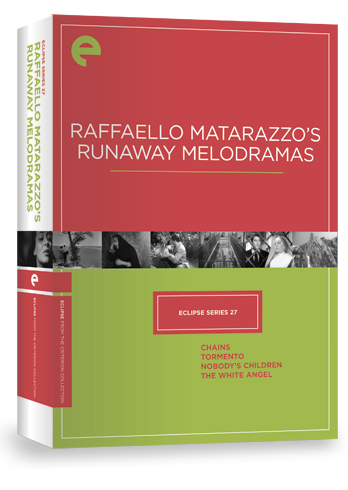
The Runaway Melodramas of Raffaello Matarazzo
Eclipse Series # 27, Available on DVD, June 21st
Matarazzo’s cinema has been for more than 40 years now one of the most interesting cases in the history of cinephilia and film history. A very popular author of beautiful melodramas, and the target of leftist critics in Italy, Matarazzo was nevertheless understood and defended by part of the French critique, the group of surrealism linked critics of the periodical Présence du cinéma (and also of Positif) who were the first, in the 60s to understand Matarazzo as a great author. The (re)discovery of Matarazzo in Italy has been the result of French enthusiasm, in particular from Jacques Lourcelles, whose Cinema Dictionary gives brilliant analysis of Matarazzo’s films. (from Mubi.com)
In the late 1940s and early 1950s, film critics, international festivalgoers, and other studious viewers were swept up by the tide of Italian neorealism. Meanwhile, mainstream Italian audiences were indulging in a different kind of cinema experience: the sensational, extravagant melodramas of superstar director Raffaello Matarazzo. These galvanic hits about splintered lovers and broken homes, all written by Aldo De Benedetti and starring mustachioed matinee idol Amedeo Nazzari and icon of feminine purity Yvonne Sanson, luxuriate in delirious plot twists and overheated religious symbolism. Four of them, each more unbridled and entertaining than the last, are collected here, chronicles of men and women on winding roads to redemption.
Cantene (Chains)
After years of working mostly on comedies and literary adaptations, Raffaello Matarazzo turned to melodrama with this intense tale of a tight-knit working-class family shattered by temptation. There’s a touch of noir in Chains (Catene), in which the virtuous yet earthy Yvonne Sanson, as the devoted wife of a mechanic (Amedeo Nazzari), finds herself unwillingly drawn back toward a criminal ex-lover.
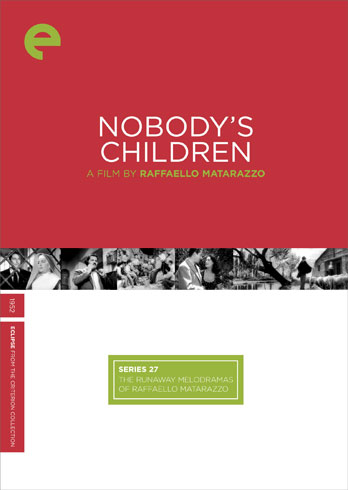
Nobody’s Children
Bursting at the seams as it is with outlandish twists and turns, Nobody’s Children (I figli del nessuno) is only the first half of Matarazzo’s supersized diptych of melodramas, which chronicles the labyrinthine misfortunes of a couple torn cruelly apart by fate (and some meddling villains). When Guido (Nazzari), a young count, falls for Luisa (Sanson), the poor daughter of one of the miners who works at his family’s quarry, his mother and her nefarious henchman scheme epically to separate the two forever.
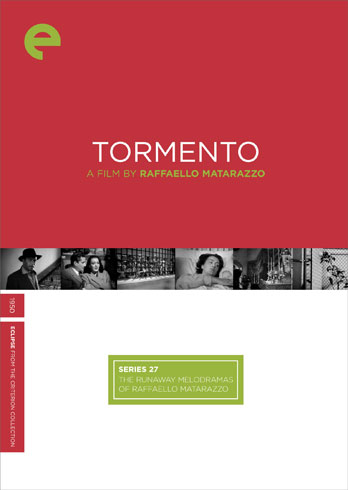
Tormento
Anna (Sanson) flees her home, where she has been victimized for years by her spineless father’s mean-spirited second wife, to be with her lover (Nazzari), an honest businessman yet to make his fortune. When he is accused of a murder he didn’t commit, the couple’s domestic tranquillity is upended, and a desperate Anna must rely on her cruel stepmother for support for her child.
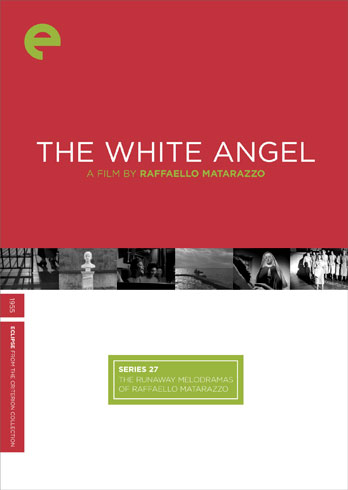
White Angel
In The White Angel (L’angelo bianco), Matarazzo’s sequel to his blockbuster Nobody’s Children, the perpetually put-upon Guido and Luisa (the Italian director’s eternal star couple, Nazzari and Sanson) return for a new round of trials and tribulations. This time, the reversals of fortune are even more insanely ornate, a plot twist involving doppelgängers beats Vertigo to the punch by three years, and the whole thing climaxes with a jaw-dropping women-in-prison set piece.


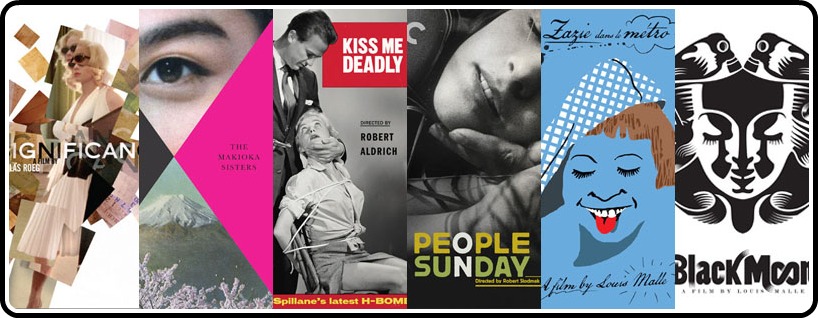
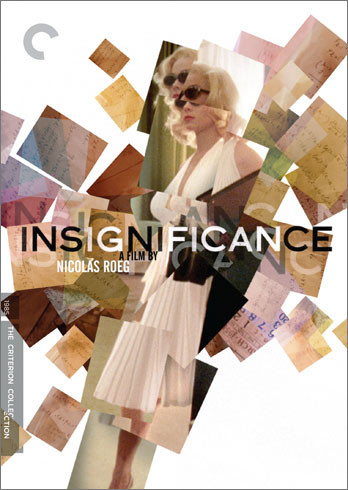



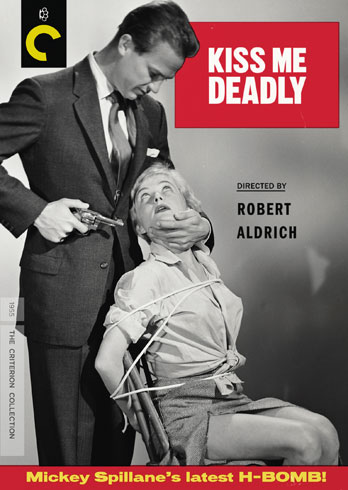
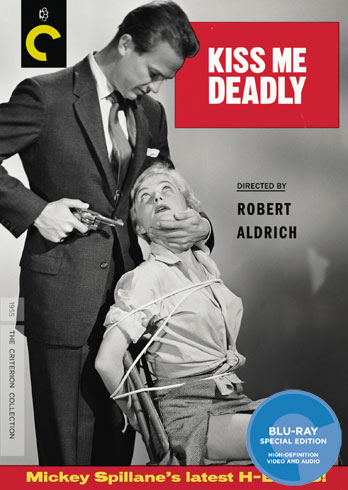

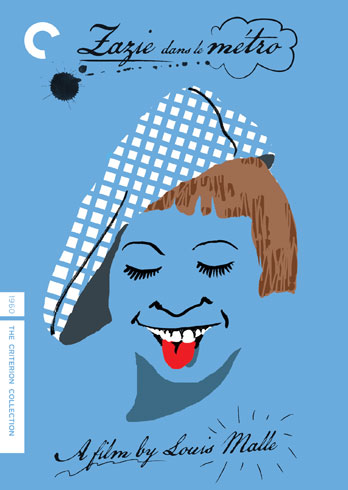

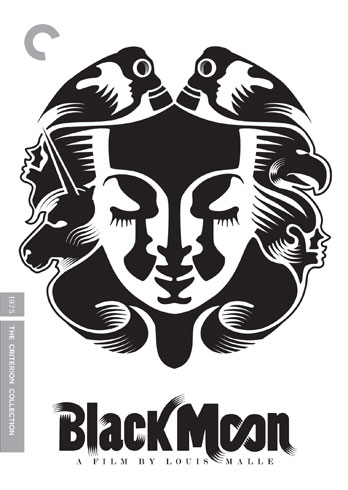
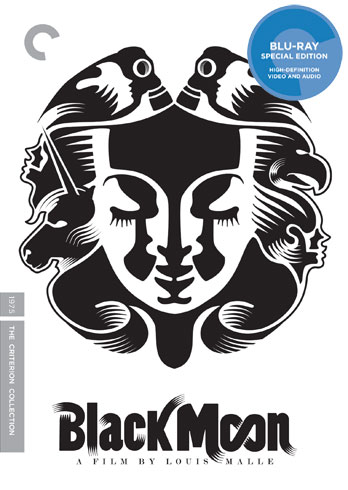


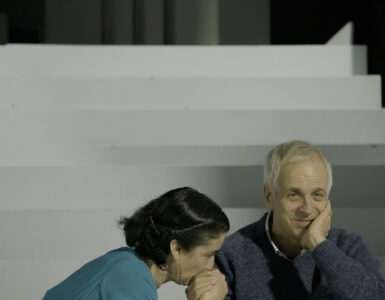

![Bergman Island (The Criterion Collection) [Blu-ray]](https://criterioncast.com/wp-content/uploads/2022/11/bergman-island-the-criterion-collection-blu-ray-400x496.jpg)
![This Is Not a Burial, It’s a Resurrection (The Criterion Collection) [Blu-ray]](https://criterioncast.com/wp-content/uploads/2022/11/this-is-not-a-burial-its-a-resurrection-the-criterion-collection-blu-ray-400x496.jpg)
![Lars von Trier's Europe Trilogy (The Criterion Collection) [The Element of Crime/Epidemic/Europa] [Blu-ray]](https://criterioncast.com/wp-content/uploads/2022/11/lars-von-triers-europe-trilogy-the-criterion-collection-the-element-of-400x496.jpg)
![Imitation of Life (The Criterion Collection) [Blu-ray]](https://criterioncast.com/wp-content/uploads/2022/11/imitation-of-life-the-criterion-collection-blu-ray-400x496.jpg)
![The Adventures of Baron Munchausen (The Criterion Collection) [4K UHD]](https://criterioncast.com/wp-content/uploads/2022/11/the-adventures-of-baron-munchausen-the-criterion-collection-4k-uhd-400x496.jpg)
![Cooley High [Criterion Collection] [Blu-ray] [1975]](https://criterioncast.com/wp-content/uploads/2022/11/cooley-high-criterion-collection-blu-ray-1975-400x496.jpg)
I’m kind of amazed that they let a month go by without any upgrades to Blu-ray. I wonder if sales of the repackaged films are falling a bit short of expectations, or if they’re just looking to pump more new stuff into the market and generate interest through fresh content?
I’m kind of amazed that Criterion let a month go by without any Blu-ray upgrades. I wonder if sales of the repackaged DVDs are running lower than expected, or if they just think it’s better to pump fresh new material into the market and avoid releasing too much product at the beginning of summer?
People On Sunday was also in the New Year’s Day wacky drawing. It was the Sunday in the red circle (which was for Le Cercle Rouge).